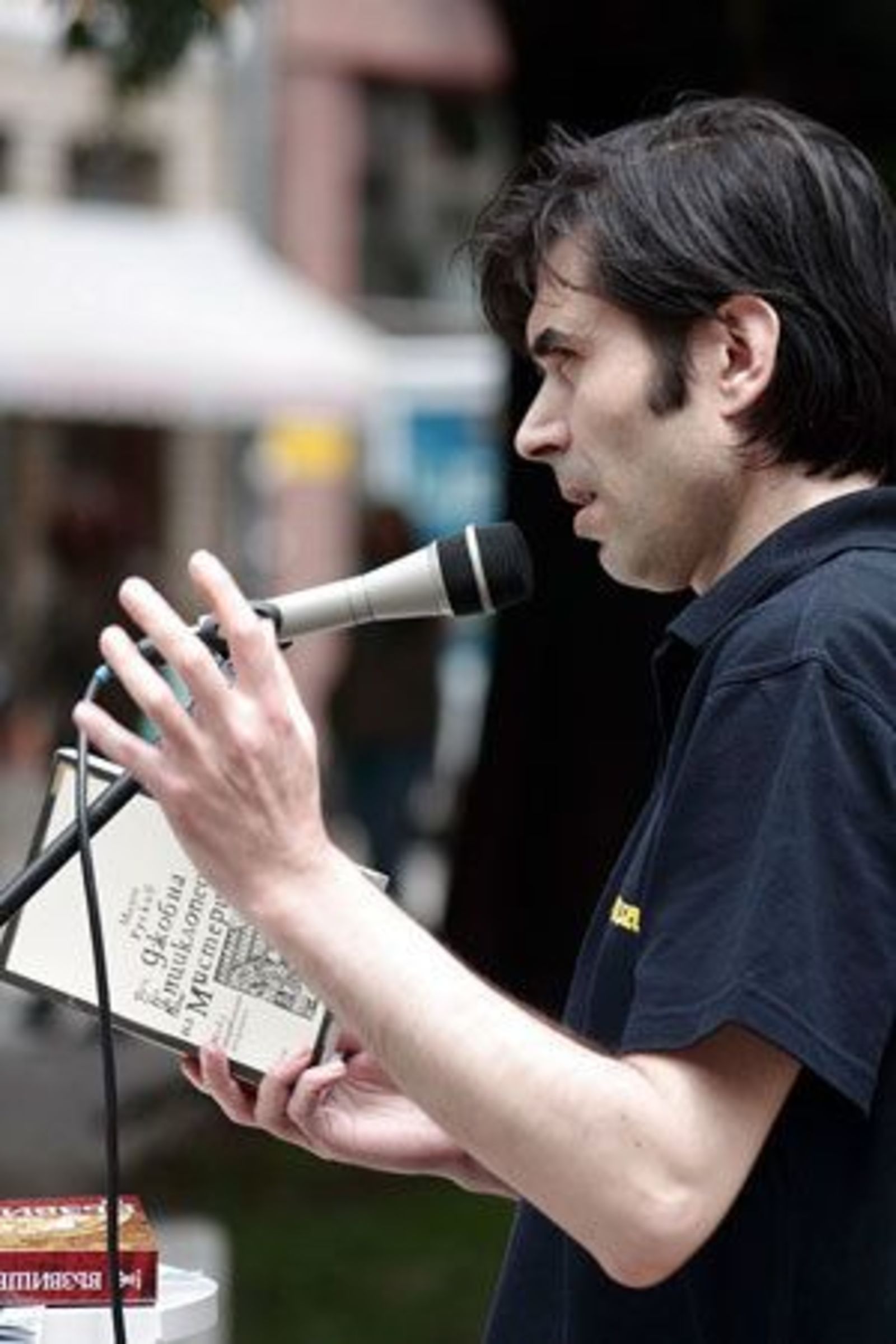THE NOVEL SUMMIT BY MILEN RUSKOV WINS THE EUROPEAN UNION PRIZE FOR LITERATURE
Milen Ruskov is one of the laureates of the European Union Prize for Literature in 2014
Milen Ruskov (b.1966) is a Bulgarian writer and translator living in Sofia. He graduated in Bulgarian philology at Sofia University in 1995. After that, he was a PhD student in linguistics at the Bulgarian Academy of Sciences. Since 2001, he has worked as a freelance translator from English for various publishers.
He has written three novels. Summit (2011) was about the Bulgarian Revival of the 19th century. The book was awarded the Golden Century Award from the Bulgarian Ministry of Culture, the Hristo G. Danov National Award for fiction, and the Elias Canetti Award for fiction. Thrown into Nature (2008) was about the introduction of tobacco to Europe by the Spanish physician doctor Nicolas Monardes of Seville. This book was awarded the Bulgarian Novel of the Year Prize. And Little Encyclopaedia of Mysteries (2004) tells the story of some European occult traditions of the Renaissance, which was awarded the Bulgarian Prize for Debut Fiction.
Book Awarded: Възвишение (Summit)
Synopsis:
In Turkish-ruled Bulgaria, the year is 1872, a feverish period of revolutionary committees, raids on Turkish cash-convoys, brigand freedom fighters and a quest for knowledge and identity, known in history as the Bulgarian Revival. This is a time of passionate self-education and allegiance to the great cause of ridding Bulgaria of its oppressors. The pretentious pomp of revolutionary ideals is filtered through the consciousness of two lads, the earnest semi-educated Gicho and his credulous kleptomaniac companion Assen. They set out armed with guns and books from the town of Kotel to join a band of brigand-revolutionaries in the mountains. Their characters reflect a mixture of down to earth brigand ruthlessness and revolutionary idealism, while their adventures form a rich comic pageant, enlivened by Gicho’s well-meaning attempts to educate his companion. Once they have joined the brigand band, they take part in the robbery of a Turkish tax-wagon convoy at the Arabakonak Pass – an event that marks the turning point in their tragicomic adventures. This robbery, notorious in Bulgarian history, provoked an effective and harsh reaction from the usually corruptible Turkish authorities, leading to mass arrests and the crushing of the Internal Revolutionary Organization. Our two characters, encircled in the mountains by the Turkish army, now face a dilemma which puts their personalities to the test. They make different choices, but both meet the same end.
The narrative is conveyed in Gicho’s words – a rich, crude Renaissance language which demands to be read out loud. His character combines a modern curiosity about the wider world with traditional peasant instincts. The resulting internal conflict is comic and revelatory in turns. The novel daringly blows away all the patriotic clichés normally associated with this serious subject, without underestimating thе desperate heroism of the times.
